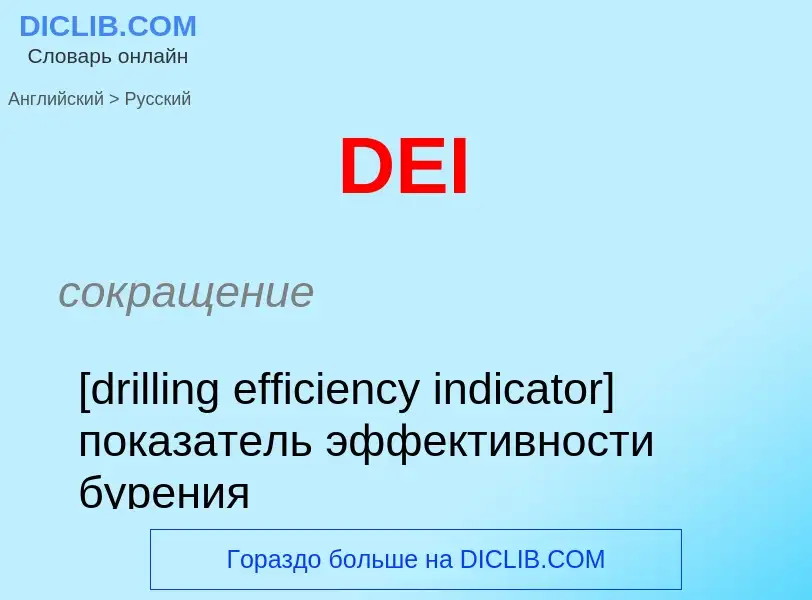Übersetzung und Analyse von Wörtern durch künstliche Intelligenz ChatGPT
Auf dieser Seite erhalten Sie eine detaillierte Analyse eines Wortes oder einer Phrase mithilfe der besten heute verfügbaren Technologie der künstlichen Intelligenz:
- wie das Wort verwendet wird
- Häufigkeit der Nutzung
- es wird häufiger in mündlicher oder schriftlicher Rede verwendet
- Wortübersetzungsoptionen
- Anwendungsbeispiele (mehrere Phrasen mit Übersetzung)
- Etymologie
DEI - Übersetzung nach russisch
сокращение
[drilling efficiency indicator] показатель эффективности бурения
[,ɑ:gnus'deii:]
общая лексика
"Агнус деи", "Агнец божий" (церковное песнопение во время обедни с обрядом причащения [Holy Communion])
название по начальным словам латинского текста
церковное выражение
«Агнец Божий» (часть мессы у католиков)
музыка к этой части
изображение агнца
несущего крест (эмблема Христа)
образок или ладанка с изображением агнца
строительное дело
"агнец божий" (архитектурный орнамент)
Definition
Wikipedia
Deus (Classical Latin: [ˈd̪e.ʊs], Ecclesiastical Latin: [ˈd̪ɛː.us]) is the Latin word for "god" or "deity". Latin deus and dīvus ("divine") are in turn descended from Proto-Indo-European *deiwos, "celestial" or "shining", from the same root as *Dyēus, the reconstructed chief god of the Proto-Indo-European pantheon.
In Classical Latin, deus (feminine dea) was a general noun referring to a deity, while in technical usage a divus or diva was a figure who had become divine, such as a divinized emperor. In Late Latin, Deus came to be used mostly for the Christian God. It was inherited by the Romance languages in Galician and Portuguese Deus, Catalan and Sardinian Déu, French and Occitan Dieu, Friulian and Sicilian Diu, Italian Dio, Spanish Dios and (for the Jewish God) Ladino דייו/דיו Dio/Dyo, etc., and by the Celtic languages in Welsh Duw and Irish Dia.

![Statue of [[Archangel Michael]] slaying Satan represented as a [[dragon]]. ''[[Quis ut Deus?]]'' ("Who is like God?") is inscribed on his shield. Statue of [[Archangel Michael]] slaying Satan represented as a [[dragon]]. ''[[Quis ut Deus?]]'' ("Who is like God?") is inscribed on his shield.](https://commons.wikimedia.org/wiki/Special:FilePath/Michael4.jpg?width=200)
![13th century ivory carving, [[Louvre]]. 13th century ivory carving, [[Louvre]].](https://commons.wikimedia.org/wiki/Special:FilePath/Crozier lamb Louvre OA7267.jpg?width=200)
